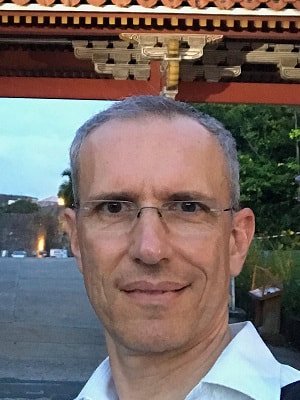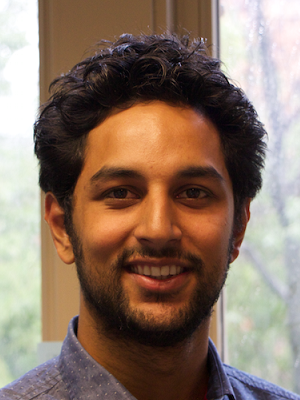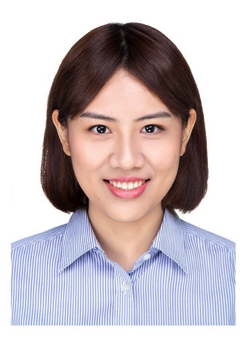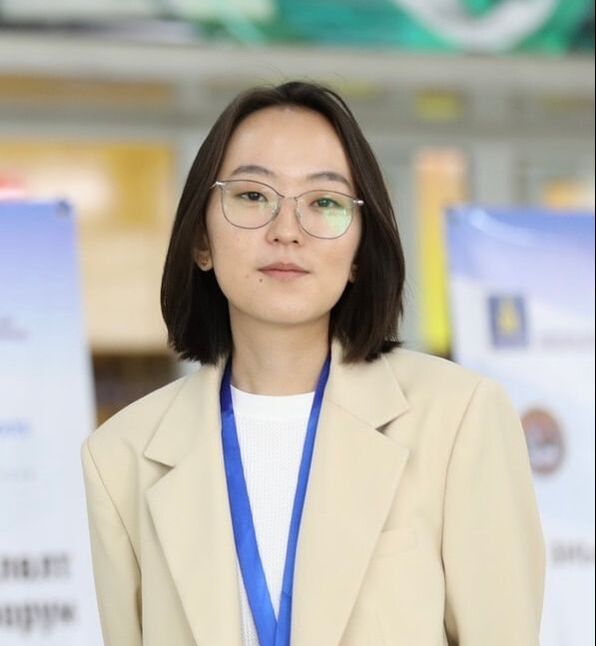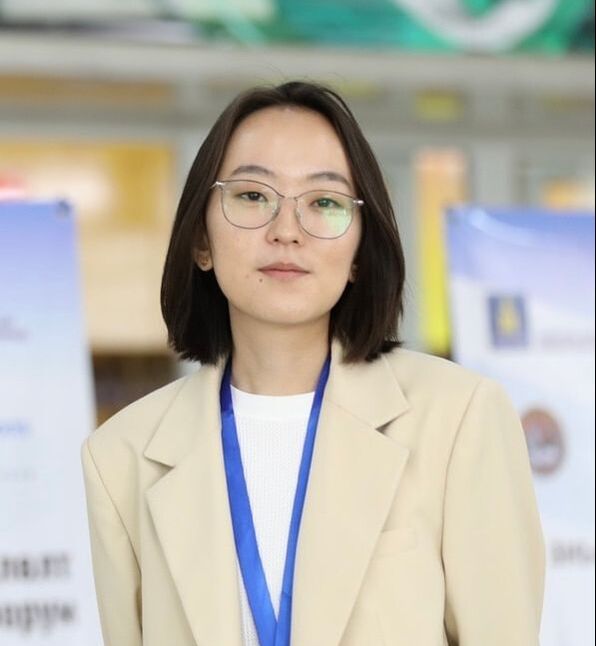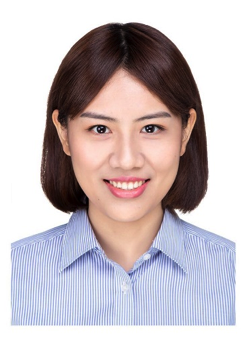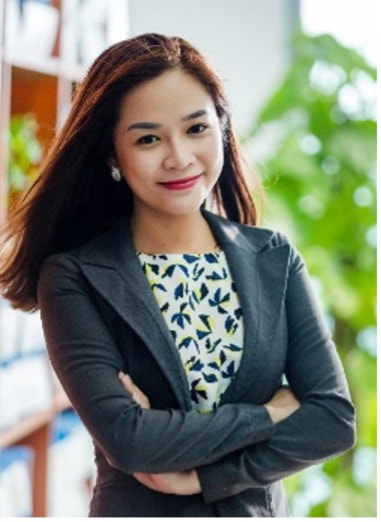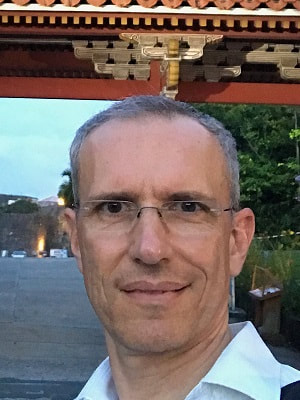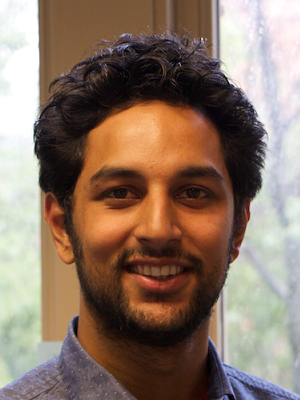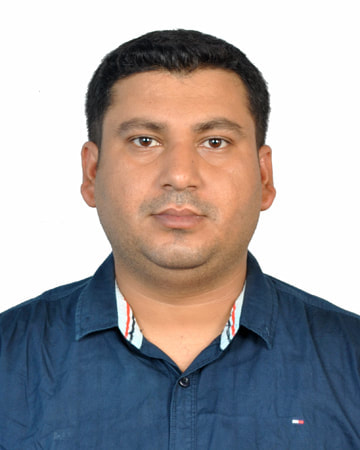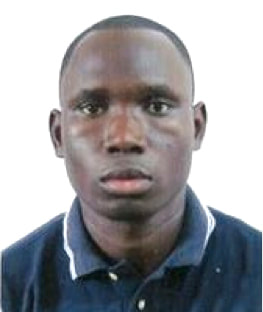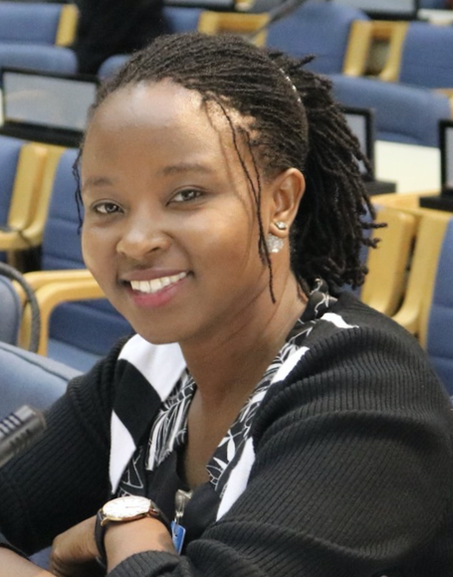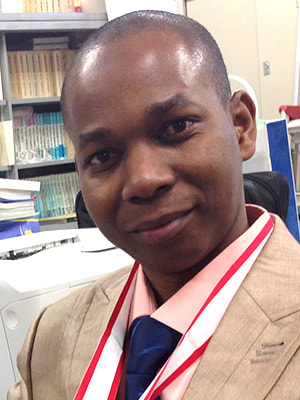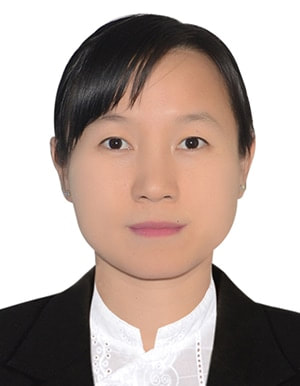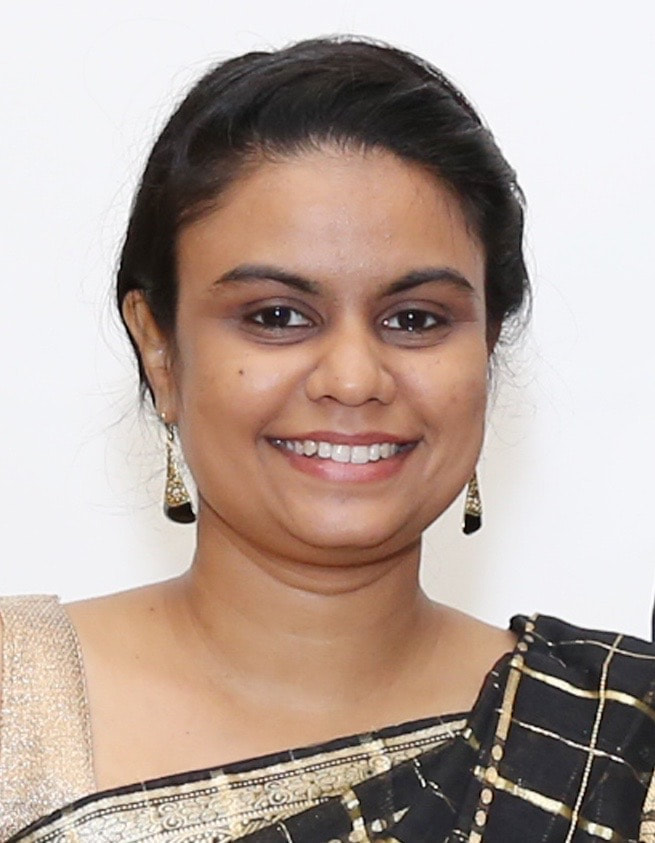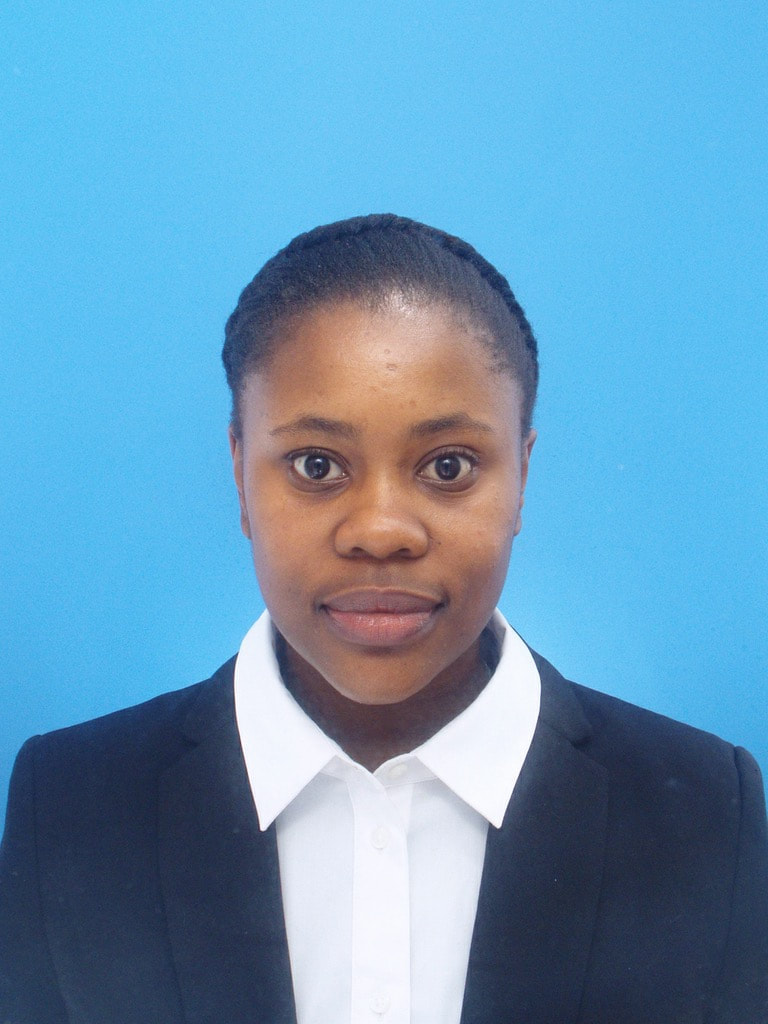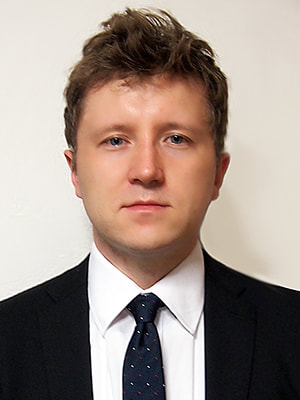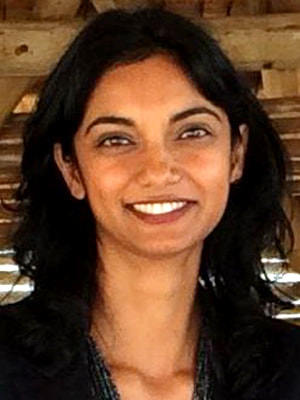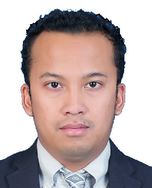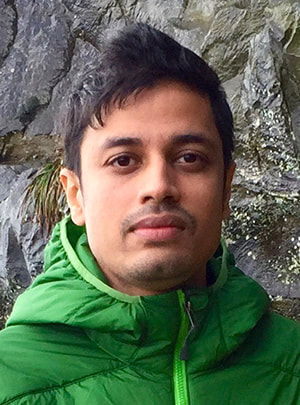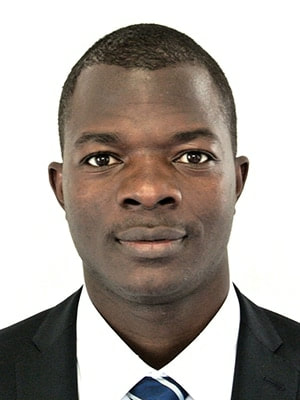|
Battsetseg Banzragch
Battsetseg is a MSc student at the Graduate Program in Sustainability Science – Global Leadership Initiative (GPSS-GLI), University of Tokyo. She holds a BA in International Relations from the Ural Federal University, Russia. She previously worked at the Ministry of Environment and Tourism of Mongolia. She is interested in in finding solutions to societal, economic, and other challenges through nature-based solutions, and defining ways to implement nature-based solutions in expediting sustainable development. |
|
Jasmine Black
Jasmine is a UNU-JSPS Postdoctoral Fellow at IFI, University of Tokyo and the United Nations University Institute for the Advanced Study of Sustainability (UNU-IAS). She has a PhD in Soil Biogeochemistry from Newcastle University for which she gathered soils and data from the Amazon in Guyana to assess molecular and bulk carbon storage. Following this, she worked in organic farming and with farmer-led innovation in the charity sector in Japan and the UK. She then transitioned into social sciences at the Countryside and Community Research Institute (CCRI), UK. As a researcher, she works at the nexus between nature, farmers and policy makers to understand and amplify the ‘quieter’ voices in our world for more holistically managed landscapes. Jasmine is also a storyteller and illustrator, and works with Socially Engaged Art & Practice to bring these creative elements into her research. In her current fellowship she is investigating opportunities and barriers to multiplying Alternative Food Networks as and the importance of women’s roles and stories within them. She sits on the board for the Community Supported Agriculture Network UK. Twitter: @Dr_SoilieJas |
|
Jie Su
Jie Su is a PhD candidate in the Graduate Program in Sustainability Science – Global Leadership Initiative (GPSS-GLI), University of Tokyo. Jie holds an MSc in Environment Management from Xiamen University (2019) and a BSc in Environmental Science from Fudan University (2016) in China. During her degrees she focused on the economic valuation of coastal ecosystem services and endangered species in marine ecosystems of China. She is interested in finding solutions about environmental and ecological issues through economic models and approaches, especially relating to marine and coastal sustainability, ecosystems services, and biodiversity. Her current research focuses on socio-economic optimization for the systematic planning of coastal protection and restoration interventions in China that meet environmental, social and economic goals for present and future generations. |
|
Lam Thi Mai Huyhn
Lam Huynh is currently a PhD candidate at the Graduate Program in Sustainability Science – Global Leadership Initiative (GPSS-GLI), University of Tokyo. She obtained an MSc in Sustainability Science from the University of Tokyo and a BSc in Sustainability and Environmental Management from the University of Leeds. She previously served as a public officer in Vietnam between 2016 and 2019, specialising in urban planning and natural resources management. She is interested in the evaluation of ecosystem services and human wellbeing, urban planning and sustainability, and the assessment of adaptation and vulnerability to climate change. Her current PhD research focuses on mapping the current evidence about the effectiveness of ecosystem-based adaptation globally. Furthermore, she compares the local effectiveness of different coastal ecosystem-based adaptations and traditional engineering solutions in China, Singapore and Vietnam. |
|
Michael Murawski
Michael is a research student in the Graduate Program in Sustainability Science – Global Leadership Initiative (GPSS-GLI), University of Tokyo. Prior to joining GPSS-GLI, he completed a M.A. in Environmental Studies at Sophia University and obtained a Joint Degree Diploma from the United Nations University in Tokyo. Originally an Economics and Finance graduate (B.Sc. from Goethe University, Frankfurt), Michael gathered a wealth of experience across consulting firms and international banks, working on renewable energy infrastructure and sustainable agroforestry investments in Sub-Sahara Africa and Europe. Building on his professional experience, Michael’s current research seeks to evaluate and monetize natural capital and ecosystem services in urban green spaces. His second area of research, considers various policy incentive schemes to promote biodiversity-oriented, mixed-species forest restoration investments. |
|
Quanli Wang
Quanli Wang is PhD candidate in the Graduate Program in Sustainability Science -Global Leadership Initiative (GPSS-GLI), University of Tokyo. Before entering GPSS-GLI, he was a Research Assistant in the Environmental Economics Laboratory at the Coastal and Ocean Management Institute (COMI), Xiamen University, China. He holds a MSc in Environmental Science and Engineering from Xiamen University (2019), and a BSc in Resources, Environment & Urban-Rural Planning Management from Fujian Agriculture and Forestry University (2016) in China. During his degrees he worked on the assessment of urban resilience and ecosystem services in coastal areas of China using GIS. His research interests include food security, poverty alleviation, economic growth, aquatic resources conservation, and sustainable aquaculture production. His current research seeks to analyse key sustainability issues related to aquaculture operations applying different econometric models. His specific research aim is to develop appropriate methods to assess the sustainable yields of different freshwater and seawater aquaculture systems in countries with different development levels such as Japan, China, and Myanmar in order to balance ecological, economic and social benefits. |
|
Robert Massimo Alfonsi
Robert Massimo Alfonsi is a PhD candidate in the Graduate Program in Sustainability Science – Global Leadership Initiative (GPSS-GLI), University of Tokyo. Before joining GPSS-GLI, Robert worked as a Lecturer in the Department of Computer Science and Informatics at the University of the Free State (UFS), South Africa (2010-2016). He obtained an MSc in Computer Science from the University of Pisa, Italy, (2009), carrying out field research in Information and Communication Technology (ICT) in Education and ICT for Development (ICT4D) at Rhodes University’s Telkom Centre of Excellence, South Africa (2005-2007). Robert is interested in the adoption and use of ICTs for food systems. For his PhD he investigates the challenges and opportunities of using ICTs for enhancing the sustainability of food systems, focusing on the development of an ICT framework for the South African food system. |
|
Vinamra Mathur
Vinamra Mathur is a PhD candidate in the Graduate Program in Sustainability Science – Global Leadership Initiative (GPSS-GLI), University of Tokyo. Prior to joining GPSS-GLI, he was Program Assistant at the Responsible Asia Forestry and Trade Program (RAFT) at the Nature Conservancy (TNC) in Bangkok, Thailand. He holds a BSc (Hons.) in Environmental Science from the University of Manchester (2013) and an MSc in Environmental Governance from the United Nations University, Tokyo (2014). Vinamra’s research stems from his professional experience at the Nature Conservancy, which provided capacity-building and knowledge-sharing services to several Asia-Pacific countries in support of their efforts to promote trade in responsibly harvested and manufactured wood products. Through his research, he aims to understand the role of Japanese timber procurement and logging processes and practices, in order to better estimate their impact in the Sarawak region of Malaysia. |
Past members
|
Dalelan Anderson was an MSc Research Student in the Graduate Program in Sustainability Science - Global Leadership Initiative (GPSS-GLI), University of Tokyo (2019-2021).
His research focused on critical aspects of parrot-fish fisheries management in Jamaica, with a specific focus on the perspectives of multiple stakeholders and local communities. |
|
Helen was a PhD student at the Graduate Program in Sustainability Science – Global Leadership Initiative (GPSS-GLI), University of Tokyo (2016-2020).
Her PhD research focused on how urban ecosystems are contributing a green economy transition in Myanmar, undertaking an economic valuation of ecosystem services provided by green spaces in Pyin Oo Lwin, a secondary city of Myanmar. |
|
Himangana Gupta was a Visiting Research Fellow at IFI, and a JSPS-UNU Postdoctoral Fellow at the United Nations University-Institute for the Advanced Study of Sustainability (UNU-IAS) (2019-2021).
She conducted research on mountain social-ecological systems, especially trying to understand the drivers of change and its impacts in the Indian Himalayan region. |
|
Linda Chinangwa was a Visiting Research Fellow at IR3S, and a JSPS-UNU Postdoctoral Fellow at the United Nations University-Institute for the Advanced Study of Sustainability (UNU-IAS) (2015-2017).
She conducted research on the potential of Payment for Ecosystem Services (PES) schemes in sugarcane and tobacco landscapes of Malawi. |
|
Melvis Apoh was an MSc student at the United Nations University Institute for the Advanced Study of Sustainability (UNU-IAS) (2019-2021).
Her MSc thesis focused on the values of indigenous Baka communities in Cameroon, as well as how they are affected by forest conservation and large development projects. |
|
Merle Naidoo was a PhD student at the Graduate Program in Sustainability Science – Global Leadership Initiative (GPSS-GLI), University of Tokyo (2015-2018).
Her PhD research explored the adoption, visibility, and sustainability outcomes of Corporate Environmental Sustainability (CES) practices in supermarket retailers in Japan and South Africa. |
|
Mizan Bisri was a Visiting Research Fellow at IFI, and a JSPS-UNU Postdoctoral Fellow at the United Nations University-Institute for the Advanced Study of Sustainability (UNU-IAS) (2018-2020).
For his research he explored the networked-politics of science and policy nexus on disaster management and climate change adaptation in Southeast Asian countries. |
|
Shamik Chakraborty was a Visiting Research Fellow at IR3S, and a JSPS-UNU Postdoctoral Fellow at the United Nations University-Institute for the Advanced Study of Sustainability (UNU-IAS) (2015-2017).
He conducted research on ecosystem change and how it affects the ecosystem services provision in traditional Japanese seascapes. |
